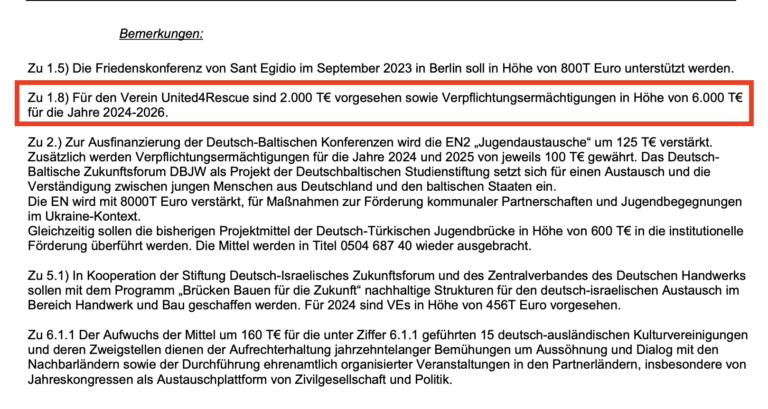
Germany in unprecedented debt, yet government keeps spending lavishly
Germany has set a new record in terms of public debt, which currently stands at 28.155 euros per capita. Meanwhile, although the federal government is unwilling to give up its policies based on lavish spending, it can still find taxpayer money to prolong the war in Ukraine.
German public debt has reached a new record at the end of last year. Overall, the debt of the federal government, the states, the municipalities, the municipal associations and the social security system, including all extra sums in the non-public sector, stood at 2367.3 billion euros, the Federal Statistical Office in Wiesbaden reports.
This means a debt of 28.155 euros for every German person. In 2022, public debt increased by 2.0 percent or 46.1 billion euros compared to the previous year. These statistics only take into account liabilities to the non-public sector, such as banks and private companies in Germany and abroad.
The federal debt grew at an above-average rate: by the end of 2022, it rose by 4.6 per cent or 71.9 billion euros to 1620.4 billion euros compared to the previous year.
„This is mainly due to the continued increase in financing requirements as a result of the pandemic situation in recent years, and the current energy crisis,”
the statisticians emphasized, adding that most of the debt is attributable to the establishment of the Economic Stabilisation Fund (WSF). The fund was set up in 2020 to counteract the economic effects of the coronavirus pandemic, and was expanded last year to cushion the impact of the energy crisis. The overall debt of the two areas amount to 82.7 billion euros.
Germany’s states, however, can catch their breath for a while: with the exception of Saxony-Anhalt, all states were able to reduce their debt in 2022 compared to the end of 2021. In Saxony-Anhalt, debt rose by 4.7 percent, mainly due to the fact that the state issued a higher amount of securities to ensure favourable interest rates ahead of the expected interest rate hikes on the capital market,” the experts say.
The opposition Alternative for Germany (AfD) party voiced sharp criticism over what it described as the „brutal” debt accumulated by the federal government. The party regards the expansion of the chancellery building as the most outrageous move by the government coalition, which is made up of the Social Democrats, the Greens and the Liberals. Initially, costs were estimated at 600 million euros, but the expected final cost is now closer to 777 million euros, and who knows what the total amount will be when the works are completed. Once finished, the chancellor’s office will be many times the size of the White House in the United States. The Federal Audit Office and the Taxpayers’ Association have already warned the government about the dangerously high costs. Apart from unnecessary construction projects, the sharp increase in debt level is also the result of steep and unreasonable staff increases at ministries, the AfD points out.
„This must come to an end: we need radical job cuts, the ministries must concentrate on essential tasks and no new buildings are needed to this end. It is important that we handle tax revenues paid by hard-working citizens responsibly,”
AfD’s press release reads.
This, however, is all negligible compared to the amount of money that flows through the various lobby groups linked to one of the governing parties in the coalition, primarily to the Greens.
For example, it was recently leaked that an annual grant of two million euros was awarded to an organisation that participates in the rescue of migrants in distress on the Mediterranean Sea, and the head of this organisation is, incidentally, the partner of Katrin Goring-Eckardt, the Green Party vice president of the federal parliament.
The sources for this funding are covered directly from the budget of the Federal Ministry of Foreign Affairs, and are not included in the original draft budget. But indirectly, of course, this money comes from taxpayers’ pockets.

To add to Germany’s existing financial woes, Finance Minister Christian Lindner of the Liberals has recently requested the Bundestag’s budget committee to increase public spending in terms of weapons deliveries to Ukraine significantly. Thus, providing military aid to Ukraine will cost around 12 billion euros to Germany in the coming years.
Tags:

